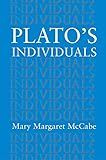Plato's Individuals / Mary M. McCabe.
Material type: TextPublisher: Princeton, NJ : Princeton University Press, [2021]Copyright date: ©1994Description: 1 online resource (360 p.)Content type:
TextPublisher: Princeton, NJ : Princeton University Press, [2021]Copyright date: ©1994Description: 1 online resource (360 p.)Content type: - 9780691219448
- Individuation (Philosophy)
- PHILOSOPHY / History & Surveys / Ancient & Classical
- Recollection
- accident
- affinity
- austere individuals
- being
- bundles
- change
- complex entities
- compresence of opposites
- cosmology
- dialectic
- dialogue form
- difference
- empiricism
- essence
- explanation
- generous individuals
- grammatical prejudice
- identity
- ignorance
- interpredication
- knowledge
- language
- lumps
- methods of philosophy
- natures
- one over many
- perception
- properties
- relations
- sameness
- separation
- soul
- stuff
- teleology
- transcendence
- understanding
- unity
- universals
- values
- variables
- wholes
- 111/.82 20
- online - DeGruyter
| Item type | Current library | Call number | URL | Status | Notes | Barcode | |
|---|---|---|---|---|---|---|---|
 eBook
eBook
|
Biblioteca "Angelicum" Pont. Univ. S.Tommaso d'Aquino Nuvola online | online - DeGruyter (Browse shelf(Opens below)) | Online access | Not for loan (Accesso limitato) | Accesso per gli utenti autorizzati / Access for authorized users | (dgr)9780691219448 |
Frontmatter -- Contents -- Acknowledgments -- Abbreviations -- One. The Problem of Individuation -- Part One. Preliminary: Plato's Middle Period Metaphysics -- Two. Particulars -- Three. Forms -- Part Two. The Problem Emerges -- Four. The One and the Others -- Five. Bundles and Lumps -- Six. Slices and Stuffs -- Seven. Being and Talking -- Part Three. Two Answers -- Eight. Resolving Relations -- Nine. The Unity of Persons -- Ten. Conclusion -- Appendix A. On the Order of the Dialogues -- Appendix B. Arguments from First Principles -- Select Bibliography -- Index Locorum -- Index of Persons -- General Index
restricted access online access with authorization star
http://purl.org/coar/access_right/c_16ec
Contradicting the long-held belief that Aristotle was the first to discuss individuation systematically, Mary Margaret McCabe argues that Plato was concerned with what makes something a something and that he solved the problem in a radically different way than did Aristotle. McCabe explores the centrality of individuation to Plato's thinking, from the Parmenides to the Politicus, illuminating Plato's later metaphysics in an exciting new way. Tradition associates Plato with the contrast between the particulars of the sensible world and transcendent forms, and supposes that therein lies the center of Plato's metaphysical universe. McCabe rebuts this view, arguing that Plato's thinking about individuals--which informs all his thought--comes to focus on the tension between "generous" or complex individuals and "austere" or simple individuals. In dialogues such as the Theaetetus and the Timaeus Plato repeatedly poses the question of individuation but cannot provide an answer. Later, in the Sophist, the Philebus, and the Politicus, Plato devises what McCabe calls the "mesh of identity," an account of how individuals may be identified relative to each other. The mesh of identity, however, fails to explain satisfactorily how individuals are unified or made coherent. McCabe asserts that individuation may be absolute--and she questions philosophy's longtime reliance on Aristotle's solution.
Mode of access: Internet via World Wide Web.
In English.
Description based on online resource; title from PDF title page (publisher's Web site, viewed 30. Aug 2021)


